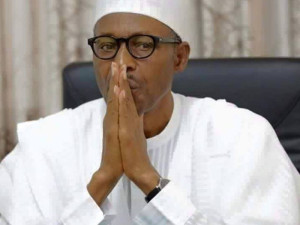
President Muhammadu Buhari flagged off the “Change begins with me” campaign last week Thursday, 8th September 2016, more than fifteen months after assuming power as an elected president. The main goal of the programme is to instill discipline and patriotism in Nigerians. Speaking as a Special Guest at the launch of the programme initiated by the National Orientation Agency (NOA) under the Federal Ministry of Information and Culture, Buhari charged Nigerians not to see the “change” slogan of his administration only in terms of social and economic reforms but also in the role that individual citizens must play in actualising it.
According to him, Nigerians can contribute to “change” through the way “we conduct ourselves, engage our neighbours, friends and generally how we relate with the larger society in a positive and definitive way and manner that promotes our common good and common destiny…” For a programme so intimately tied to the campaign mantra of the All Progressives Congress (APC) in 2015, it is rather surprising that it took all of fifteen months before a national reorientation campaign based on it was unfolded.
It would have made a much bigger impact across the populace if the President had launched this programme within the first few weeks of his being sworn-in, when his popularity and goodwill were at their zeniths.
Secondly, we find it rather disheartening that the initiative is coming from a lack-lustre NOA and its mother ministry which most Nigerians view with suspicion. The President cannot be a “guest” in a programme that should be his personal pact with Nigerians. We do agree there is a compelling need for sweeping change, both at the levels of governance and the citizenry.
Nigerians must begin to live within their means. We must look inwards for most of our needs rather than depend on foreign finished goods. We must love things made in Nigeria and work extra hard to shift our nation away from oil-dependence. We must also change our poor attitude to our country and one another. Nigerians must see one another as compatriots, not enemies. However, we believe that leadership will necessarily play a leading role in bringing about the much-needed change. The reorientation must start from the top of governance and leadership as an example for citizens to follow. The campaign for “change” will fail if the citizenry continue to see a leadership that preaches one thing and does another.
Nigerians will ignore Minister Lai Mohammed and his team of “change” campaigners unless they see a great change in the nepotism and inequities in the selection of people manning sensitive government posts. Nigerians must have a sense of belonging, and only government can provide it. The role of leadership in changing Nigeria for the better cannot be over-emphasised. Once this is done, Nigerians will eagerly key into it.
END

Be the first to comment